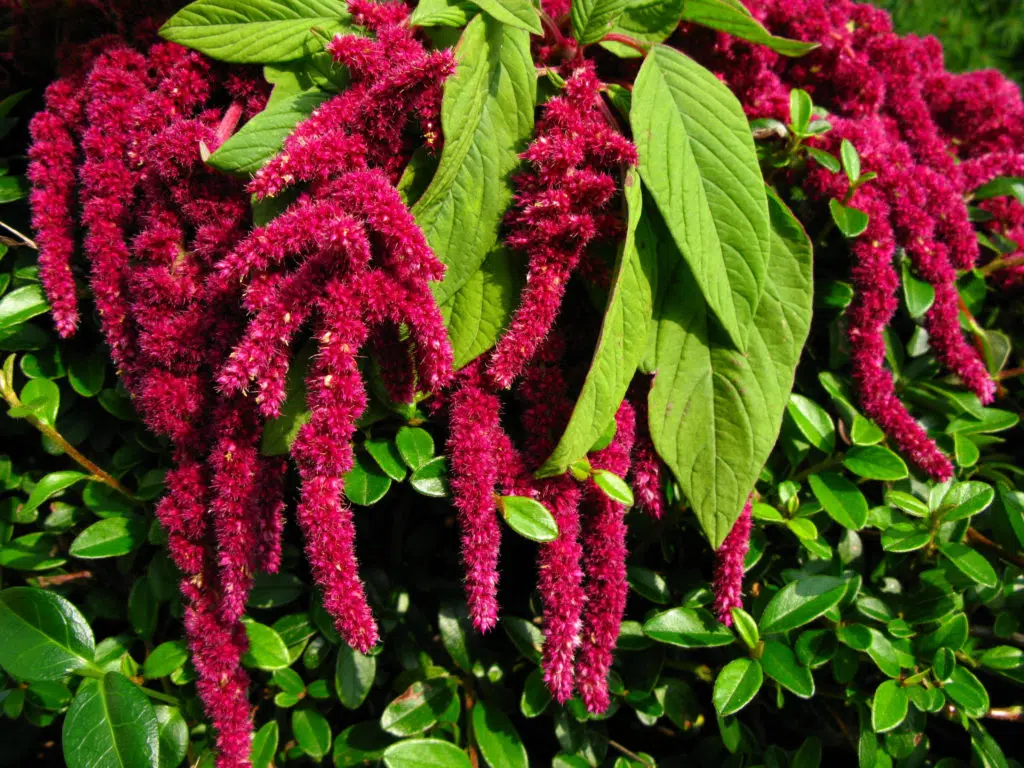Amaranth is another one of our favourite wholegrains here at CG and has been a staple food across the world for millennia. Like quinoa, amaranth is technically not a cereal grain (like wheat) but is rather a pseudo-grain. This low-GI, gluten-free pseudo-grain has risen in popularity in recent years because of its startling health benefits, boasts a comparable nutrient profile and is used in a similar way to other grains.
Why is Amaranth good for you?
Earthy in flavour, nutty in texture, amaranth has a wide variety of potential health benefits. Despite rising in popularity in recent years and being called a ‘superfood’, research into the health-promoting properties of amaranth is still lacking. Here is what we do know –
1. Aids weight loss
Amaranth, like quinoa, is one of few plant-based ‘complete’ proteins, meaning it contains all the essential amino acids your body needs (meat is a complete protein).1https://wholegrainscouncil.org/whole-grains-101/grain-month-calendar/amaranth-may-grain-month Essential amino acids are those your body cannot make itself, so must be obtained from food. So how does protein affect weight? Protein takes longer to digest than other macronutrients, so increases satiety. Eating protein (along with carbohydrates) at mealtimes slows the release of energy leaving you feeling fuller for longer, thus aiding weight loss.
2. Gut health
Amaranth is rich in fibre. Fibre is crucial for your digestive health as it aids gastrointestinal motility and nourishes and diversifies your gut bacteria.2https://www.nutrition.org.uk/healthy-sustainable-diets/starchy-foods-sugar-and-fibre/fibre/ Fibre-rich foods also aid weight loss by increasing satiety.
3. Blood sugar
Amaranth is low on the glycaemic index3https://nutritiondata.self.com/facts/cereal-grains-and-pasta/10640/2p, so doesn’t cause blood sugar spikes as highly-processed, refined carbohydrate foods do. Fibre also slows the release of energy into your bloodstream, providing you with longer-lasting energy throughout the day. Amaranth contains a powerful, satiating combination of complex carbohydrates and protein designed nicely to fuel you through your day!
4. Lowers cholesterol
Animal studies have shown that consumption of amaranth can help lower LDL ‘bad’ cholesterol in the body. Click here for more information on what to do if you have high cholesterol.
5. Reduces inflammation
Inflammation is your body’s immune response designed to fight infection.4https://www.ncbi.nlm.nih.gov/books/NBK493173/ Chronic inflammation, however, can lead to conditions such as autoimmune disorders, cancer and diabetes in the long term.5https://www.ncbi.nlm.nih.gov/pmc/articles/PMC3492709/ One animal study has shown that amaranth may help reduce inflammation, however; more research is needed to determine the extent of amaranth’s anti-inflammatory potential on the human body.6https://pubmed.ncbi.nlm.nih.gov/19003205/
What is the nutrient profile?
Amaranth is rich in a range of nutrients. 100g of cooked amaranth will provide you with7https://nutritiondata.self.com/facts/cereal-grains-and-pasta/10640/2 –
Energy – 102kcal
Carbohydrate – 18.7g
Fibre – 2.1g – 7% of your daily recommended intake (30g!)
Protein – 3.8g
Fat – 1.6g
.. as well as an array of vitamins and minerals: magnesium, phosphorus, manganese, iron, calcium, vitamin B and more!8https://nutritiondata.self.com/facts/cereal-grains-and-pasta/10640/2
How do I prepare Amaranth? And how do I eat it?
When cooking amaranth, use the ratio of 1.5 cups water to 1/2 cup amaranth. Heat the mixture in a small saucepan until it begins to boil. Then reduce the heat and let it simmer, uncovered until the water is absorbed. This typically takes about 20 minutes.
Amaranth is a versatile recipe and can be eaten sweet or savoury. Why not try this tabbouleh-style amaranth salad or give amaranth porridge a go! Stay tuned for recipes!
Find out more about our other favourite wholegrains here – quinoa, oats and buckwheat and what you should be eating every day instead of bread, rice, pasta or potatoes!
References
- 1
- 2
- 3
- 4
- 5
- 6
- 7
- 8














